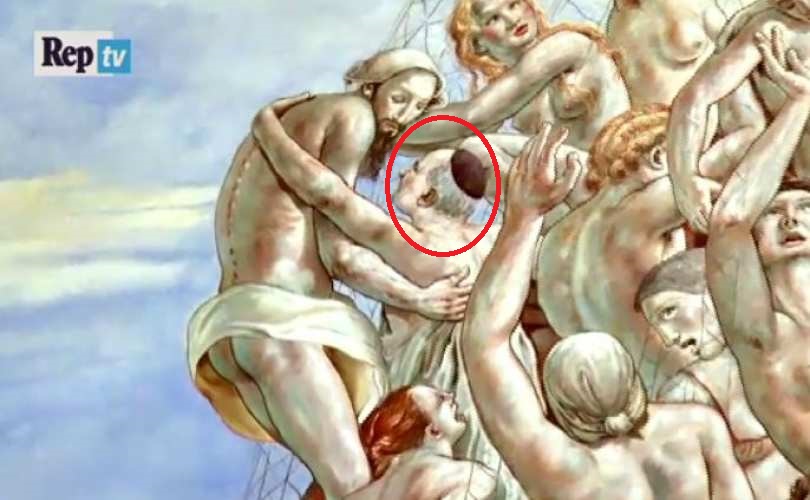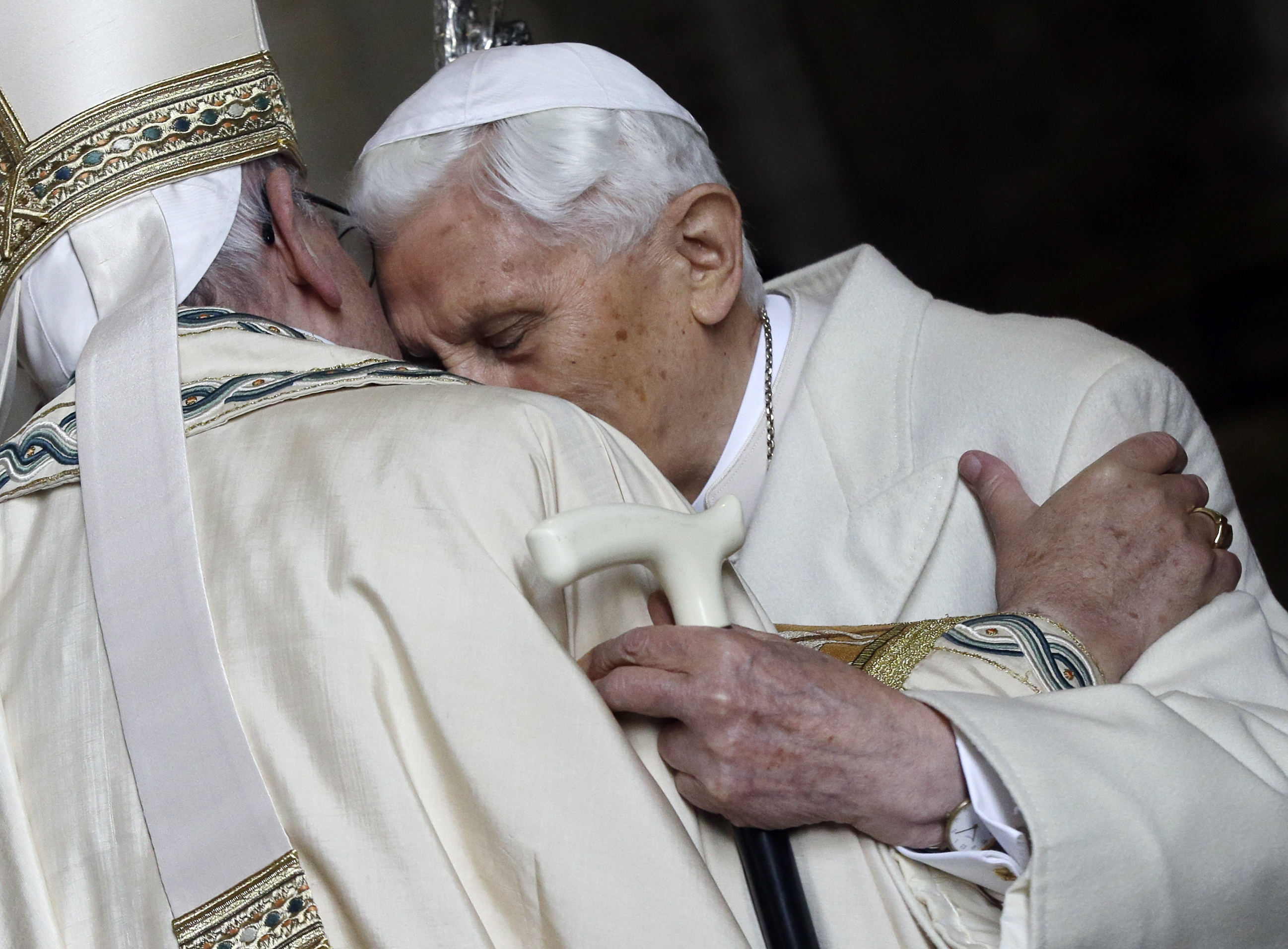https://rorate-caeli.blogspot.com/2017/06/new-pontifical-academy-of-life.html
New Pontifical Academy of Life Appointee Supports Euthanasia by Starvation
An ethics study group for the Italian Jesuit magazine Aggiornamenti Sociali, headed by Fr. Maurizio Chiodi, a newly appointed member of the Pontifical Academy for Life and a theologian of the Northern Italian Theological Faculty of Milan, has joined Italian euthanasia activists in supporting a bill that would legalize physician assisted suicide and/or euthanasia in certain cases. The bill has already been approved by the House and is now before the Italian Senate.
Fr. Chiodi's study group cites "proportionalism" to argue that terminally ill cancer patients and those in a persistent vegetative state (like Terri Schaivo - pictured here) should have a legal right to refuse food and water, or to create an advanced healthcare directives for such a euthanasia by starvation and dehydration. Fr. Chiodi's group writes:
2. ... A democratic state is made up of citizens committed to respecting the different ethics, world views and religions, in a context of mutual inclusion and sincere hospitality without trying to impose itself on others.....
5. A controversial issue concerns artificial nutrition and hydration (ANH), which the draft of the law includes among the treatments that can be refused in an AHD [advance healthcare directive] or advance planning. In Catholic thought it is often stated that these means are always obligatory; in reality, ANH [artificial nutrition and hydration] is a medical and technical intervention and as such does not avoid the judgment of proportionality. Nor can it be excluded that sometimes it is no longer able to achieve the purpose of providing nourishment to the patient or the alleviation of suffering. The former case can occur in the illness of terminal cancer; the second [can occur] in a vegetative state which is extend indefinitely, if the patient has previously stated that this prospect is unacceptable. Since it can not be ruled out that in cases like these the ANH [artificial nutrition and hydration] becomes a disproportionate treatment, its inclusion among the refusable treatments is correct."
On the contrary Pope St. John Paul II clearly refuted Fr. Chiodi in this matter in a 2004 address:
4. Medical doctors and health-care personnel, society and the Church have moral duties toward these persons from which they cannot exempt themselves without lessening the demands both of professional ethics and human and Christian solidarity.The sick person in a vegetative state, awaiting recovery or a natural end, still has the right to basic health care (nutrition, hydration, cleanliness, warmth, etc.), and to the prevention of complications related to his confinement to bed. He also has the right to appropriate rehabilitative care and to be monitored for clinical signs of eventual recovery.
I should like particularly to underline how the administration of water and food, even when provided by artificial means, always represents a natural means of preserving life, not a medical act. Its use, furthermore, should be considered, in principle, ordinary and proportionate, and as such morally obligatory, insofar as and until it is seen to have attained its proper finality, which in the present case consists in providing nourishment to the patient and alleviation of his suffering.
The obligation to provide the "normal care due to the sick in such cases" (Congregation for the Doctrine of the Faith, Iura et Bona, p. IV) includes, in fact, the use of nutrition and hydration (cf. Pontifical Council "Cor Unum", Dans le Cadre, 2, 4, 4; Pontifical Council for Pastoral Assistance to Health Care Workers, Charter of Health Care Workers, n. 120). The evaluation of probabilities, founded on waning hopes for recovery when the vegetative state is prolonged beyond a year, cannot ethically justify the cessation or interruption of minimal care for the patient, including nutrition and hydration. Death by starvation or dehydration is, in fact, the only possible outcome as a result of their withdrawal. In this sense it ends up becoming, if done knowingly and willingly, true and proper euthanasia by omission.
The Pontifical Academy for Life's 2000 Document, "Respect for the Dignity of the Dying" as confirmed by John Paul II similarly stated: "One must always provide ordinary care (including artificial nutrition and hydration), palliative treatment, especially the proper therapy for pain, in a dialogue with the patient which keeps him informed."
Likewise, a 2007 declaration by the CDF , confirmed by Pope Benedict XVI, declared:
First question: Is the administration of food and water (whether by natural or artificial means) to a patient in a “vegetative state” morally obligatory except when they cannot be assimilated by the patient’s body or cannot be administered to the patient without causing significant physical discomfort?Response: Yes. The administration of food and water even by artificial means is, in principle, an ordinary and proportionate means of preserving life. It is therefore obligatory to the extent to which, and for as long as, it is shown to accomplish its proper finality, which is the hydration and nourishment of the patient. In this way suffering and death by starvation and dehydration are prevented.Second question: When nutrition and hydration are being supplied by artificial means to a patient in a “permanent vegetative state”, may they be discontinued when competent physicians judge with moral certainty that the patient will never recover consciousness?Response: No. A patient in a “permanent vegetative state” is a person with fundamental human dignity and must, therefore, receive ordinary and proportionate care which includes, in principle, the administration of water and food even by artificial means.
February 2017 also saw the publication of a problematic update to the Pontifical Council for Pastoral Assistance to Health Care Workers's New Charter for Health Care Workers, paragraph 152 of which affirms:
"Nutrition and hydration, even artificially administered are to be considered among the basic cares due to the dying, when they do not become too burdensome or are of some benefit. Their unjustified withdrawal can have the significance of a true and proper act of euthanasia."
The 1995 older version of this text admittedly left room for clarity on this issue, as it had stated in paragraph 120: "... The administration of food and liquids, even artificially, is part of the normal treatment always due to the patient when this is not burdensome for him: their undue suspension could be real and properly so-called euthanasia."
It should be noted that besides his stance in support of euthanasia, Fr. Chiodi also opposes the Church's perennial teaching on contraception.














